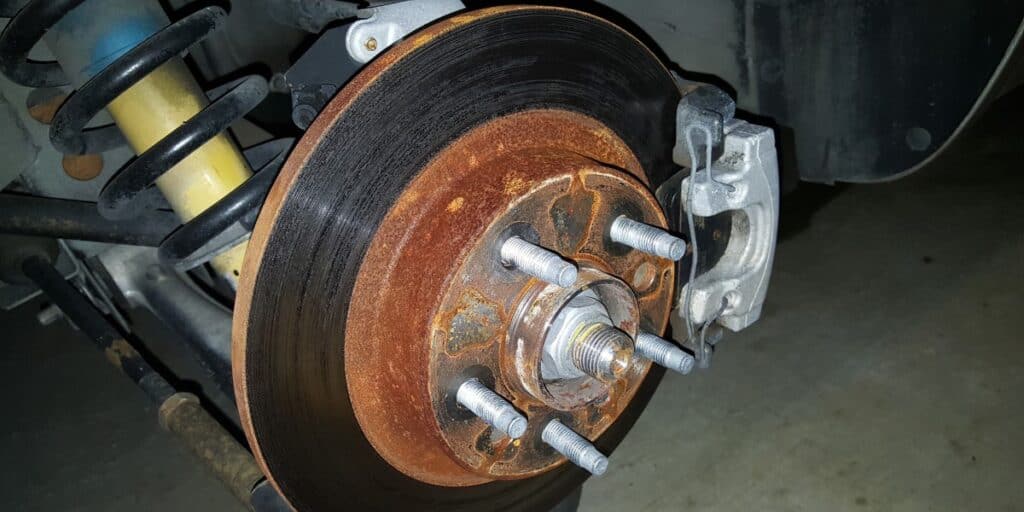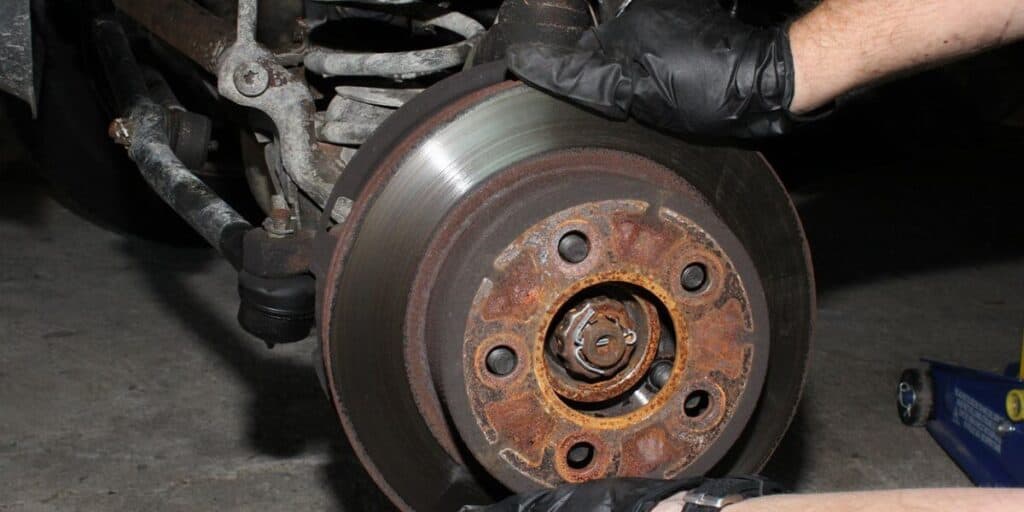If your car is regularly exposed to snow, as occurs during the winter, you might be stressing your braking system. Here’s all you need to know about how cold weather affects your brakes.
1. Rust
Snow and ice are essentially liquid. Your car heats up following an all-day use, taking up winter cold and snow as you drive. When you finally park, all the snow and ice warm-up and stay moist on your brakes. After extended exposure to moist, rust sets in, affecting the brake rotors and resulting in “pitting,” a condition that wears away your brake rotors, and eventually exposes the brake pads to rust particles. If you notice strange sounds accompanied by loss of braking performance and brake pads that are stuck firm to your rotors, you most likely have a moisture-compromised braking system. You might also notice your brake pedal feeling stiff, and your car giving off a burning smell. To minimize the chances of rust formation, drive on less icy routes and protect your car from extended exposure to moisture.

2. Excess heat
When you press on your brake pedal, friction is generated as the brake pads clamp on the rotors, giving off heat in the process. This is why your car’s braking system will still feel warm hours following a drive, and especially after heavy brake use. If you stomp on your brakes often, you risk experiencing brake fade, which weakens the system and causes a dip in brake power. Many believe cold weather might reduce heat generation and slows cars faster, but it’s unlikely the case. To prevent your braking system from overheating, don’t ride the brake pedal. Apply the brakes only when there is an utmost need, use the engine instead and don’t drive closely to other cars.
2. Brake Lines Become Frozen
Another possibility is that your brake lines freeze following long-term exposure to winter cold and ice. While brake fluid won’t freeze, there is the risk of water infiltrating the system. At exceedingly low temperatures, water will freeze and compromise the internal components of the brake lines, potentially rupturing them. If your brake lines are ruptured, you’re going to experience fluid leaks. The ripple effect goes all the way to the hydraulic system and reduced braking performance. Hence a good reason to regularly inspect the brake lines if you drive on snow-covered roads. Stick to the maintenance guideline of your manufacturer and hire professional assistance if you detect any problems with the braking system. Your mechanic will check the brake fluid level, refill it if necessary and provide the right repair service for any damaged components.
4. Faulty Brake Shoe
Brake shoes are present in cars with drum brakes. And they are just as important as any other component of your braking system. Since winter driving is generally more challenging, keeping your brake shoes in good condition is important. Brake shoes can go bad during any season, but winter increases this risk, usually due to rust-jacking, which occurs on extended exposure to water. If you suspect your brake shoes are faulty or it takes longer to slow down your car, visit your mechanic for a brake inspection service as soon as possible.

5. Damage due to salt
If you live in terrains where heavy winter prevails, you might have seen salt added to warm up the road and free it of snow and ice. This enhances visibility and tire grip, but salt does more harm than good to your braking system. When you drive on salted roads, your brake components pick up salt which stays there if you don’t wash the underbelly of your car. Long-term salt exposure increases corrosion, causing damage to your brake lines, rotors and discs.
Worn rotors experience more stress when you apply the brakes, and if the pads are compromised, water might trickle into the system, thus encouraging faster wear. Severe damage might also cause you to lose brake fluid. Low fluid levels affect performance and could lead to total brake failure. Frequently inspect the undercarriage of your car during the winter and wash off salt and particles to prevent corrosion-driven damage to the braking system.
Never ignore warning signs. If your car slows sluggishly or you detect any other sign of an impending brake failure, an expert mechanic will check for any problems and let you take remedial measures in time to prevent complete loss of stopping power.
